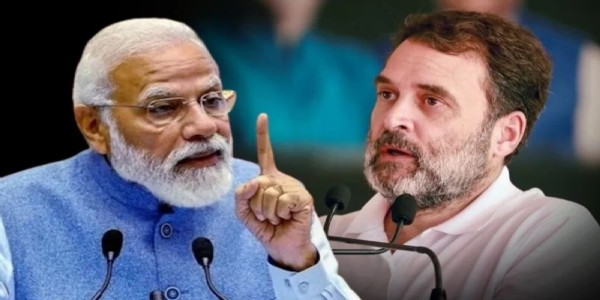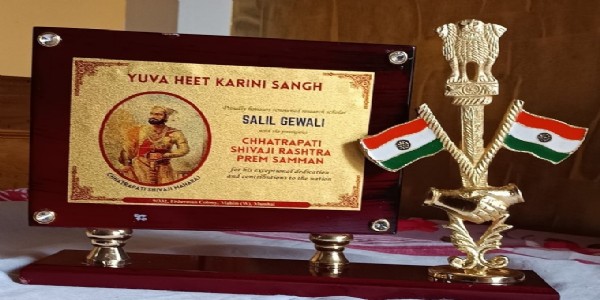Adani CEO writes to Himachal gov, as Cement plant shuts down
The Permanent Standing Committee was set up in 2005 by the state government to decide on the evaluation of freight rates.
Total Views | 162
Shimla, Jan 24: Having closed its two cement plants in Himachal on December 15 – three days after Sukhvinder Singh Sukhu of Congress took charge as the Chief Minister – due to differences with truckers, the Adani Group has said the unions must agree to run 50,000 km a year, reduce deployment of vehicles to 550 (a sixth of the current 3,311), and leave all operational decisions to the company, for it to restart production.
In a January 19 letter to the Chairman of the Permanent Standing Committee of Himachal Pradesh and copied to the state’s Chief Secretary, the CEO of Adani Cement (ACC & Ambuja Cements Ajay Kapur, wrote, “It is a very alarming situation as unions are effectively controlling and making all transport related operational decisions that belong in the domain of companies… Since the freight rate is controlled by the unions, they have artificially kept it at a very high level.”
Its cement units shut, Adani Group CEO tells Himachal to help with truck unions https://t.co/ovwmYCxLWi pic.twitter.com/XGO7VEZARd
— Prosenjit Datta (@ProsaicView) January 23, 2023
The Permanent Standing Committee was set up in 2005 by the state government to decide on the evaluation of freight rates. The two parties have been negotiating for over a month, with the latest meeting on Friday – in which Himachal Industries Minister Harshwardhan Chauhan too participated – remaining inconclusive. This is the first big test for Sukhu in the state with more than 20,000 families impacted due to the closure of the two cement plants. At the heart of the dispute is the cost per ton per km or the freight rate proposed by the Adani Group. State government officials said the transportation costs took into account 11 factors including taxes, insurance, depreciation value, repair, and wages. Dividing this by the distance the truck covers in kilometers and the weight it carries in tonnes yields the average cost per km per tonne. The Adani Group is learned to have offered Rs 6 per tonne per km (PTPK) against the existing rate of Rs 10.58 PTPK for ACL and Rs 11.41 PTPK for ACC. With truck operators refusing to accept this, the group shut down the Ambuja plant at Darlaghat and ACC plant in Bilaspur. Citing the need for due diligence and intervention, Adani Cement proposed its own framework for deciding freight rates. In the letter, CEO Kapur said the optimum km per annum for the calculation of freight should be 50,000 km. To carry out a smooth transition within a timeframe of three years, he suggested it be fixed at 40,000 km a year now, with an annual increase of 5,000 km over the next two years. He also proposed a phasing out of excess vehicles. “As mentioned in our earlier letter dated 12 January 2023, both Ambuja and ACC’s requirement is 550 trucks as against the current deployment of 3,311. Hence, it is proposed to phase out the excess trucks in the timeframe of next three years,” he proposed in the letter, also asking for an immediate moratorium on adding any new trucks.
“All operational decisions regarding transportation are to be decided by the companies as is the practice in other states. Deployment, route, etc will be decided by companies based on market principles. The capacity and type of trucks are to be decided by companies as per their transportation needs,” the letter to the standing committee chairman said. The state government has also set up a sub-committee to resolve the issue and tasked HIMCON, a state-owned agency, to calculate the freight rates on the basis of a formula proposed by the High Court. The recommendations of the HIMCON report are not known yet. The sub-committee was set up a week after Adani Cement closed the two plants. It is chaired by RD Nazim, Principal Secretary, Industries Department. everyone is aware that the trucks do not cover that much distance. The average is 21,000 km per annum. Due to a high range of distance per annum, the cost will be less. We do not know the company’s rationale, but it is not acceptable. We will accept the HIMCON report,” said Jai Dev Kaundal, head of the truckers’ association in Solan. On the claims of excess vehicles by the Adani Group, Kaundal said, “The number of trucks is supplied as per demand. In 2010, the plants demanded more vehicles and so they were given. Besides, the freight rates are up for revision in 2019. All hopes now rest on the report by the government.”
Bharati Web







